
François Boyer
Nascimento : 1920-03-30, Sézanne, Marne, France
Morte : 2003-05-24
História
François Boyer (1920 - 24 May 2003) was a French screenwriter. He achieved considerable success with his first attempt at screenwriting, Forbidden Games (1952). Initially, he found no studio interested in his work, so he redesigned the screenplay as a novel and published it in 1947 under the title The Secret Game. Although the novel achieved little or no success in its native country, it became a huge commercial success in America. All of a sudden, Boyer's novel was a hot property, so director René Clément, in conjunction with two writers Jean Aurenche and Pierre Bost, helped turn it into a screenplay. While Boyer receives story credit for the film, little is known of how much of his own screenplay made it to the screen. The film was a huge international success, and won an Honorary Oscar for the best foreign language film of its year.
Although Boyer remained prolific throughout the 1950s, 1960s and 1970s, little of his subsequent work had as much impact as Forbidden Games. His 1962 film La Guerre des Boutons, however, was remade by producer David Puttnam in 1994 as The War of the Buttons.
Source: Article "François Boyer" from Wikipedia in English, licensed under CC-BY-SA 3.0.

Writer
Georges,a trucker, is the single father of young Frédéric. His job prevents him from seeing his son as often as he could, as often as he should. Brought up by his grandparents, Frédéric proves a difficult child. His only friend is his twelve-year-old neighbor Rose. One day, Georges tells his son how Agnès, his mother, abandoned him at birth. Upset by such a revelation, Frédéric decides to be revenged...

Screenplay
Bernard, a journalist, and his friend Jules, a butcher by trade, are both passionate about horse racing.
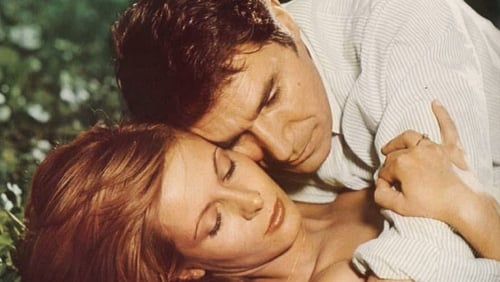
Screenplay

Writer
Leading man Michel Piccoli plays Pierre, a young musician who briefly catches sight of a beautiful woman dressed in blue and soon spends all of his time trying to track her down. After roaming the streets of Paris in search of the mystery woman, he recruits an old friend to help find her.

Writer
In 1916, Vincent van Horst leaves Europe to return to his Canadian homeland. There, he seeks his former love, Maria... but the lady's pride is hurt and she refuses to see him. Vincent then falls for a younger woman, Annie.
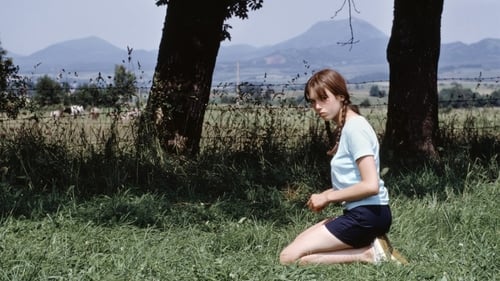
Screenplay
When the long awaited departure day arrives, le Petit Bougnat, a child coal merchant eager to go to summer camp, realizes that his mother forgot to register his name with the rest of the group. Desperate to join them, the young coal merchant tries to find a way to integrate himself with the other campers. On the opposite end of the spectrum is Rose (Isabelle Adjani), who refuses to join the kids and goes so far as to run away from the bus. While the coal merchant is busy avoiding authorities who want to remove him from the rest of the group, Rose continues to sulk and search for a way back home. Despite her initial doubtfulness, Rose eventually comes to see the charms of the camp, and walks away from an offer to leave.
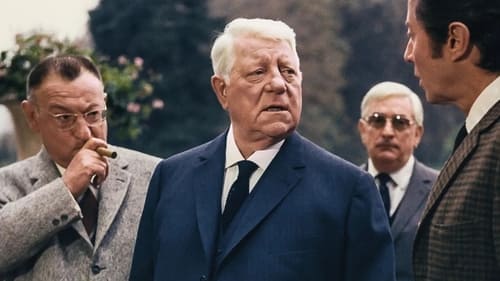
Writer
In this film, Albert is an eccentric inventor of missiles who comes under fire from his investors when his first prototype explodes. Even his sympathetic mistress has her doubts, as Albert lashes out in a verbal tirade condemning those of little faith in his genius.

Writer
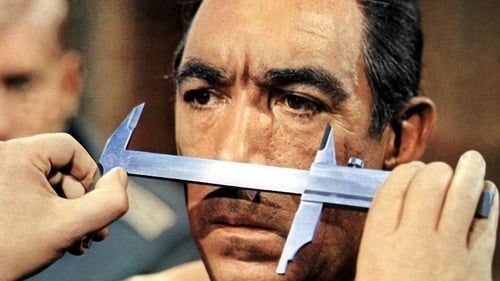
Writer
Durante a 2ª Guerra Mundial, Johann Moritz, um camponês judeu romeno, cuja esposa é muito cobiçado pelo gendarme da aldeia, é denunciado, preso e enviado a um campo de concentração. No campo, o comandante se confunde e acha que ele é um novo recruta, um voluntário para a SS. E então ele é convocado para o SS. Ironicamente, após a guerra, ele fica detido pelas autoridades aliadas por seu envolvimento com a SS em tempo de guerra.
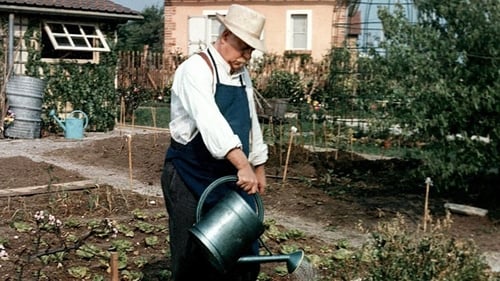
Writer
Tulipe, is an old man who lives alone in an old railway carriage in the Argentueil region of Paris. His main passions are gardening and oil painting, but he also has a secret source of income. His godson discovers that Tulipe is actually a master forger, producing perfect copies of 10 franc notes. His godson’s girlfriend sees this as an opportunity to get very rich – but she must persuade Tulipe to forge 500 franc notes. Assuming Tulipe’s agreement, his godson and his girlfriend buy an expensive new car and luxury villa in provincial France – but there is a cruel turn of fate in store for them when Tulipe strikes up a friendship with a millionaire playboy.
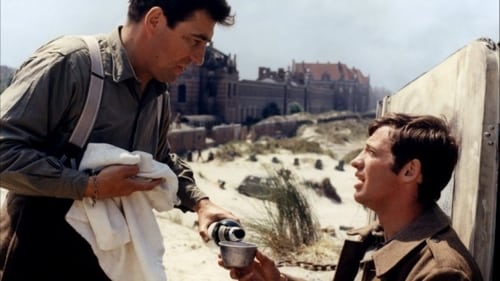
Adaptation
In June 1940, during the Dunkirk evacuation of Allied troops to England, French sergeant Julien Maillat and his men debate whether to evacuate to Britain or stay and fight the German troops that are closing-in from all directions.
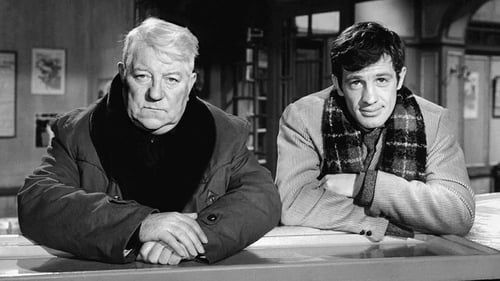
Writer
Albert é dono de uma pousada que prometeu nunca mais beber se ele e sua esposa sobreviverem à guerra. Sobrevivem e o alcoólatra reformado mantém seu voto. Mas os tempos mudaram e logo após a guerra, Albert entra em contato com Gabriel, um jovem propenso a pesados ataques à garrafa. Gabriel está em conflito por visitar sua filha em uma escola próxima e, em um momento de nostalgia, Albert entra com ele em uma grande farra, mas com resultados desastrosos. (e 14 - Estimado 14 Anos)
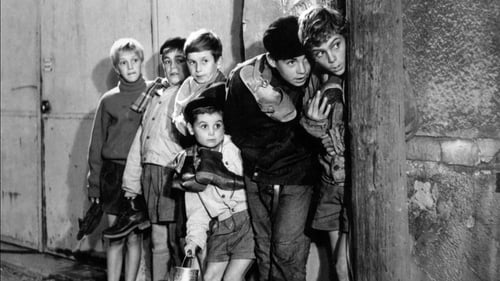
Writer
Guerra dos Botões é sobre duas gangues rivais, cujos combates divertidos se transformam em violência. O título deriva dos botões que são cortados das roupas do time rival como troféus de combate

Priest (uncredited)
Guerra dos Botões é sobre duas gangues rivais, cujos combates divertidos se transformam em violência. O título deriva dos botões que são cortados das roupas do time rival como troféus de combate

Dialogue
In 1943, a group of high school students decide to take action against the Nazi occupying forces. Showing courage and imagination, they manage to blow up the Kommandantur and to release hostages. But after the killing of a German soldier the Nazi police apparatus strikes back. The young resisters are arrested and two of them are condemned to death.

Screenplay
A young garage owner, Henri, whose business is not going well, fixes the lovely Gloria's car on the road. She suggests he let part of his garage to her friends.
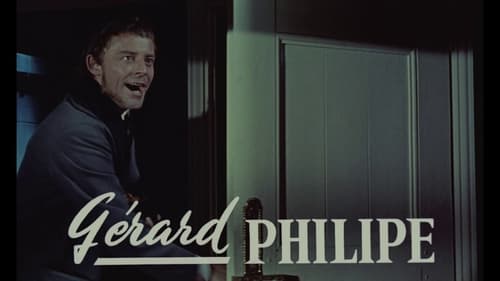
Writer
In 1866, a young Muscovite named Alexei Ivanovitch arrives in Baden Baden, then the gambling capital of Austria, and is soon engaged by General Zagorianski to look after his children. Alexei discovers that his employer is a compulsive gambler who has been almost ruined by his addiction. The only money the General has is provided by the Marquis de Grieux, an adventurer who intends to marry Zagorianski’s sister, Pauline. In doing so, de Grieux hopes to profit from the vast inheritance that will come the General’s way from his Aunt Antonina, who is presently very ill. Alexei is appalled by this society which lives only for money. He loves Pauline and wants to take her to a healthier place, but when she refuses to marry him, he begins to gamble at the casino…

Screenplay
In Nice, the wealthy widow Betty Farnwell falls for the charms of a handsome young man, Philippe Delaroche. Mrs Farnwell is so taken with Philippe that she persuades her bank to allow him to manage her financial affairs. Philippe, an unscrupulous opportunist, is not slow to turn the situation to his advantage and within no time he is married to his wealthy benefactor. Philippe has barely grown accustomed to wearing a wedding ring when he begins a romantic liaison with his wife’s attractive secretary, Eva. It soon transpires that Eva is even more ruthless than Philippe...

Dialogue
In Nice, the wealthy widow Betty Farnwell falls for the charms of a handsome young man, Philippe Delaroche. Mrs Farnwell is so taken with Philippe that she persuades her bank to allow him to manage her financial affairs. Philippe, an unscrupulous opportunist, is not slow to turn the situation to his advantage and within no time he is married to his wealthy benefactor. Philippe has barely grown accustomed to wearing a wedding ring when he begins a romantic liaison with his wife’s attractive secretary, Eva. It soon transpires that Eva is even more ruthless than Philippe...

Dialogue
During a stay at a roadside inn, long-distance lorry driver Jean Viard meets a young woman Clothilde who works there. Their friendship soon develops into a passionate love affair, even though Jean is already married and is old enough to be Clothilde’s father. Things take a turn for the worse when Jean loses his job and his wife finds out about his affair. But Clothilde’s predicament is even more distressing...

Writer
During a stay at a roadside inn, long-distance lorry driver Jean Viard meets a young woman Clothilde who works there. Their friendship soon develops into a passionate love affair, even though Jean is already married and is old enough to be Clothilde’s father. Things take a turn for the worse when Jean loses his job and his wife finds out about his affair. But Clothilde’s predicament is even more distressing...
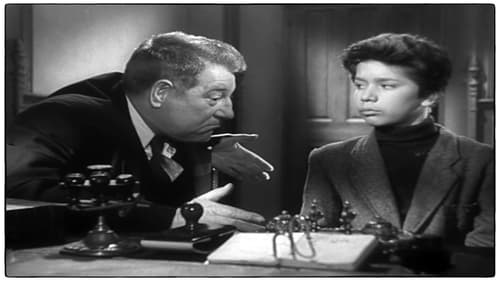
Dialogue
Judge Julien Lamy regularly deals with the welfare of children, namely down on their luck delinquents. When an orphan named Alain Robert burns down a barn belonging to his abusive foster family, Judge Lamy has no choice but to send him to a juvenile jail. There he meets an older boy named Francis Lanoux, who is desperate to escape and be reunited with his girlfriend Sylvette. The boys eventually flee the institution, as Francis goes in search of his lost love and Alain continues looking for his parents. Unfortunately, the little rebels run into some big problems once on the outside.

Adaptation
Judge Julien Lamy regularly deals with the welfare of children, namely down on their luck delinquents. When an orphan named Alain Robert burns down a barn belonging to his abusive foster family, Judge Lamy has no choice but to send him to a juvenile jail. There he meets an older boy named Francis Lanoux, who is desperate to escape and be reunited with his girlfriend Sylvette. The boys eventually flee the institution, as Francis goes in search of his lost love and Alain continues looking for his parents. Unfortunately, the little rebels run into some big problems once on the outside.

Writer
Lyon, 1953. Maria Manzana is the oldest of a family with five children and the only one who has a job. Maria's mother is deceased and her father is regularly drunk and violent. One evening when he wants to beat his daughter Christine, Mary helps her sister and accidentally she kills her father. At Maria's advice the family would prefer to flee. Anna, the girlfriend of Mary's brother Michael, accompanies them. Michael doesn't want to leave her behind. A friendly trucker brings Mary and her company to the south. The group then walks on deserted roads to a village, that was abandoned more than 25 years ago due to lack of water.
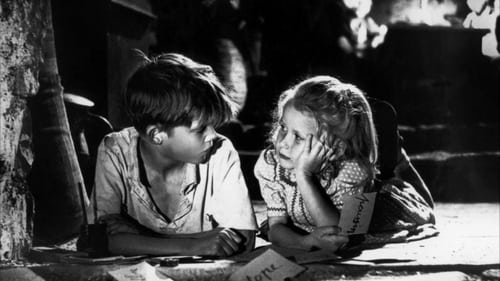
Screenplay
O filme conta a história de Paulette (Brigitte Fossey), uma menina de cinco anos de idade que perde os pais e o cachorro em um ataque aéreo quando eles fugiam de uma Paris ocupada pelos nazistas. Ao se perder do grupo de refugiados, Paulette é recolhida por Michel Dollé (Georges Poujouly), um menino de onze anos. Eles logo se tornam os melhores amigos. E enquanto os pais dele estão ocupados querendo dar uma de benfeitores e em luta com os vizinhos Gouard, Paulette e Michel criam um universo só deles. As crianças enterram o cão de Paulette num cemitério criado por eles dentro de um moinho abandonado perto da casa de Michel. Logo, passam a enterrar todo tipo de animais e embarcam em uma odisseia atrás de crucifixos para ornamentar os “túmulos”.

Novel
O filme conta a história de Paulette (Brigitte Fossey), uma menina de cinco anos de idade que perde os pais e o cachorro em um ataque aéreo quando eles fugiam de uma Paris ocupada pelos nazistas. Ao se perder do grupo de refugiados, Paulette é recolhida por Michel Dollé (Georges Poujouly), um menino de onze anos. Eles logo se tornam os melhores amigos. E enquanto os pais dele estão ocupados querendo dar uma de benfeitores e em luta com os vizinhos Gouard, Paulette e Michel criam um universo só deles. As crianças enterram o cão de Paulette num cemitério criado por eles dentro de um moinho abandonado perto da casa de Michel. Logo, passam a enterrar todo tipo de animais e embarcam em uma odisseia atrás de crucifixos para ornamentar os “túmulos”.














